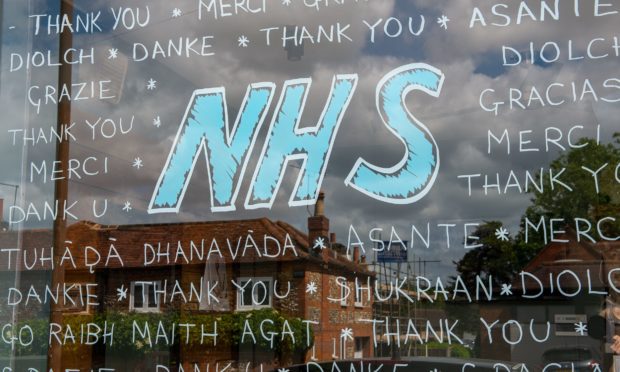At a time of crisis the public must have confidence in their government.
It’s fair to say that when we beat this pandemic an inquiry will need to be held in order to investigate the way governments have misled or lied to the general public and to learn lessons for the future.
We were all on a learning curve when this virus hit but the way some things have been dealt with has been little short of shocking. Although we handled it better in Scotland, there are still massive unanswered questions over personal protection equipment, the timing of the lockdown, testing, and the scandal of care homes.
Of course it is always easy with hindsight but misleading and incorrect statements need to be challenged. The fact that there is one rule for cabinet ministers and advisers and different rules for the public is unacceptable. After all, many people perished in this period, most of them older, and they died alone.
The first rule of any government is to protect its people. We must therefore hold our political establishment to account. There is no excuse to mislead.
However, at the present time, we need to remember the people who put themselves in the front line in order to keep the country running. Their contribution to the Covid crisis must be recognised. Not the directors, chief officers and politicians but the people we now recognise as key workers: nurses, doctors, care workers, shop assistants, posties, refuse collectors etc, people who actually put themselves at risk in the front line to keep the country working and make things happen –often facing mental stress themselves.
I hope this year there are no Queen’s Honours lists and instead every key worker is awarded a medal with a suitable inscription such as: “In recognition of the service you gave your country during the 2020 pandemic”.
There will be many thousands, even tens of thousands of them, but their value to their country, and our debt to them, is incalculable and worthy of recognition.
Similarly, let us not forget there are also the many willing volunteers in every community who gave their time and energy to help those less fortunate than themselves. These people are not looking for special praise or mentions in the local press. They help out because of their natural kindness and desire to assist others. Hopefully their local authorities, who have been instrumental in organising that, will recognise them also.
The satisfaction which comes from helping others is international. That’s why young people often volunteer to go abroad and help out in developing nations.
Despite the many problems in the world there is, and always has been, a core of remarkable people, wherever you go, who are willing to help others out of natural kindness.
In the late 1990s, when our provost Margaret Farquhar was in office, she invited me, on her behalf, to lead an emotional pilgrimage to Iceland. This was to help a group of relatives who had lost loved ones on the Loch Morar fishing vessel to gain closure.
The Loch Morar was a trawler from the north-east which sank off the coast of Iceland on March 30 1937.
The ship had been wrecked off the Icelandic village of Eyrarbakki. Bodies of six of the 12 crewmen were recovered in the weeks following the tragedy, which left 12 women widowed, and 36 children without fathers.
The villagers had seen to it that the men received a proper funeral and had tended the graves for over 60 years. Such was the empathy shared with Icelandic fishermen and our own.
Many of the surviving relatives had approached the council to assist in their appeal to visit the grave site of the tragedy.
The then chief executive of the council, Douglas Paterson, had arranged for a mahogany memorial cross to be taken with us and placed on the crewmen’s graves, along with a scroll with a message of thanks from our Provost Farquhar to the villagers of Eyrarbakki.
A special memorial service was held in the village church for which the relatives were grateful.
Later that evening a dinner to celebrate the challenging occupation of all fishermen was hosted by the villagers.
The older villagers recounted how, on that tragic night, the sea was so violent it was impossible to sail out to help the Loch Morar.
The men of the village, who saw the drama unfolding from the cliff tops, even tried to scale the rocks by sliding down ropes to try to rescue the fishermen. But it was not to be. The Icelanders could see the fishermen all huddled in the wheelhouse singing Abide With Me as the final heavy waves enveloped the trawler and took it to the bottom of the ocean.
The compassion which the people of Eyrarbakki had shown to the crew on that fateful night, and the loving and respectful way in which the villagers had tended the graves was indeed an act of human kindness, towards men they never knew. In the evening when the community leader said: “I guess Icelanders just have salt water running through our veins.” I replied that may well be but there is clearly room for the milk of human kindness running through those same veins.
The kindness these people have shown is incredible. Compassion and kindness is international.
Len Ironside is a former champion wrestler who served as an Aberdeen councillor for 35 years, four of them as council leader










